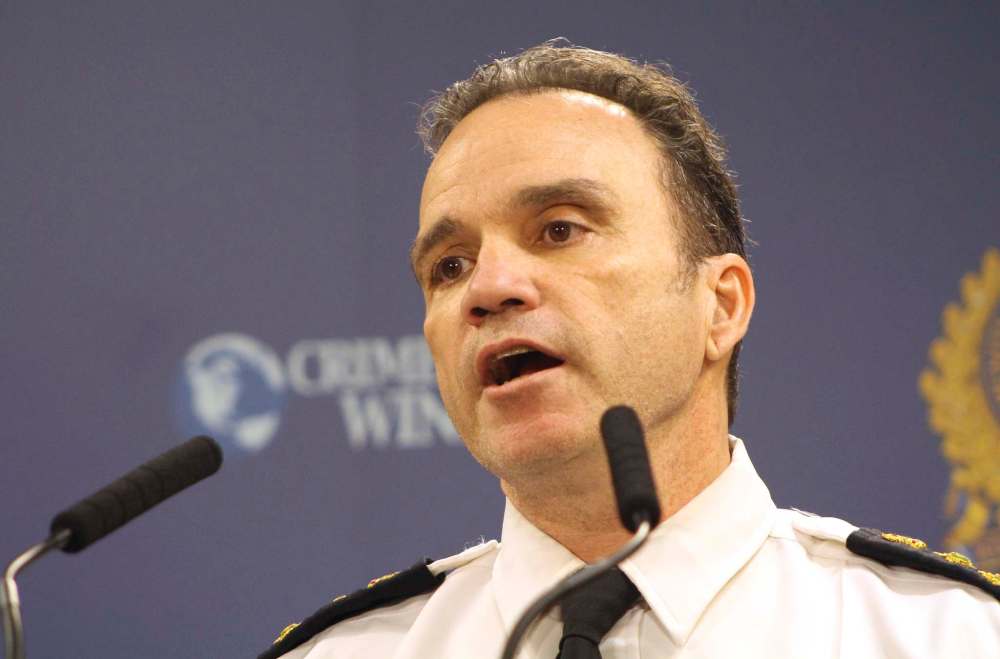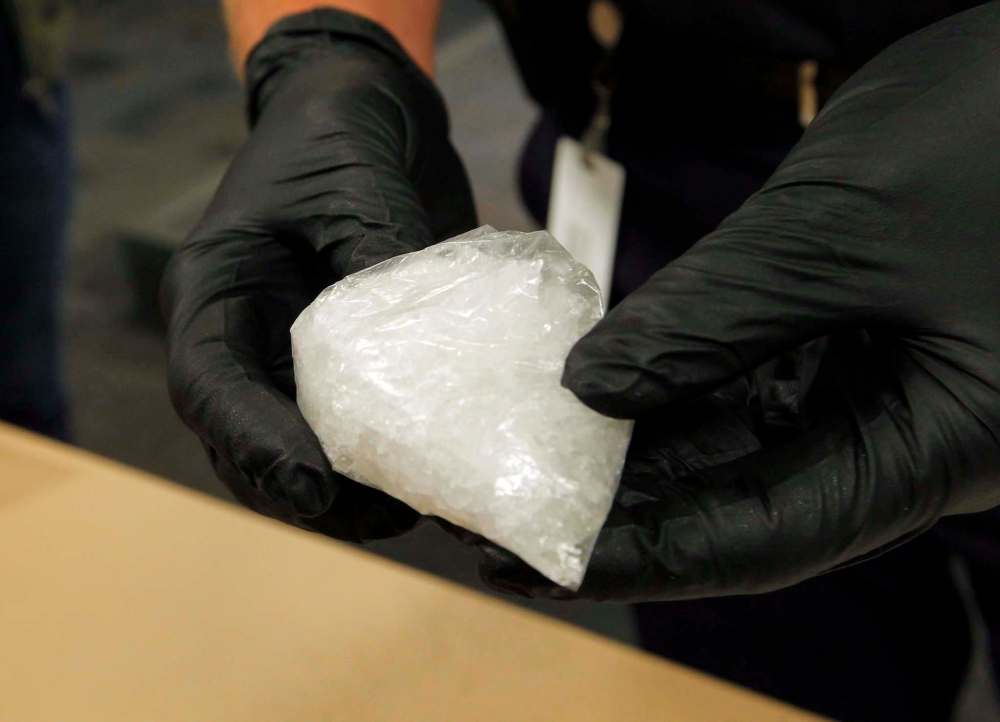Feds face limits in fighting meth crisis
Three levels of government look for solutions to growing scourge
Advertisement
Read this article for free:
or
Already have an account? Log in here »
To continue reading, please subscribe:
Monthly Digital Subscription
$1 per week for 24 weeks*
- Enjoy unlimited reading on winnipegfreepress.com
- Read the E-Edition, our digital replica newspaper
- Access News Break, our award-winning app
- Play interactive puzzles
*Billed as $4.00 plus GST every four weeks. After 24 weeks, price increases to the regular rate of $19.95 plus GST every four weeks. Offer available to new and qualified returning subscribers only. Cancel any time.
Monthly Digital Subscription
$4.99/week*
- Enjoy unlimited reading on winnipegfreepress.com
- Read the E-Edition, our digital replica newspaper
- Access News Break, our award-winning app
- Play interactive puzzles
*Billed as $19.95 plus GST every four weeks. Cancel any time.
To continue reading, please subscribe:
Add Free Press access to your Brandon Sun subscription for only an additional
$1 for the first 4 weeks*
*Your next subscription payment will increase by $1.00 and you will be charged $16.99 plus GST for four weeks. After four weeks, your payment will increase to $23.99 plus GST every four weeks.
Read unlimited articles for free today:
or
Already have an account? Log in here »
Hey there, time traveller!
This article was published 11/02/2018 (2899 days ago), so information in it may no longer be current.
OTTAWA — The Liberal government says it’ll do what it can to help curb Winnipeg’s growing meth problem, but a leading expert says Ottawa can only play a limited role.
“There isn’t really a lot the federal government can do. (It doesn’t) have a lot of levers,” said Ian Culbert, executive director of the Canadian Public Health Association.
Last week, Winnipeg Police Service Chief Danny Smyth said the city’s methamphetamine epidemic was putting strain on frontline officers, with meth busts rising over the past two years because its price keeps dropping.

Officials raised the issue at a meeting involving Mayor Brian Bowman, deputy premier Heather Stefanson and federal Energy Minister Jim Carr, who is the only Manitoban in the federal cabinet.
The meeting was aimed at clearing a logjam between the Trudeau and Pallister governments over issues such as infrastructure projects and carbon taxes. A memorandum released after the Jan. 18 meeting said the three also discussed Winnipeg’s meth crisis.
“It was raised, and all governments agreed it was a growing problem, and that we would co-operate fully to combine our efforts to combat it,” Carr said Friday. “We’re determined to work co-operatively within our own jurisdictions to do whatever we can to help ease the crisis.
Culbert said it’s not surprising meth is Winnipeg’s main drug problem, noting the city’s location makes it tough to import heroin from Asia. “Every city has a drug of choice, and it changes over time,” he said.
Experts say the fentanyl crisis was partially borne out of doctors over-prescribing opioid painkillers, and governments have imposed restrictions to change that. Meth, however, is made in home labs and isn’t a conventional drug sold in pharmacies, meaning there is less Ottawa can do to curb its use.
“I think it’s a bigger picture of creating a drug strategy that isn’t just about the substances themselves, but a broader look at why so many people need to numb their physical or emotional pain,” Culbert suggested.
He said it requires tackling social issues and poverty.
“More times than not it’s an emotional pain that they don’t have tools to deal with otherwise. So where is that coming from? And what are we doing about that?”
Last week, Winnipeg Liberal MP Doug Eyolfson, a medical doctor, sponsored a petition calling on Ottawa to make available some cold medications only by prescription, when they contain pseudoephedrine, a key ingredient that’s used to manufacture meth. The petition was drafted by the provincial Liberals.

Culbert said that petition is well-intentioned, but the trade-off of inconveniencing patients and health-care workers wouldn’t be worth it.
“The barrier you create for legitimate users is going to put an undue burden on the health system,” he said.
Culbert said it would mean people who have a cold would go to doctors’ offices and spread germs in order to get Sudafed or Allegra-D, and pharmacists would have another set of drugs to log and monitor.
He suggested those drugs could instead be put behind the counter, which can help pharmacists deter people who keep asking for the same drug.
dylan.robertson@freepress.mb.ca
History
Updated on Sunday, February 11, 2018 11:05 PM CST: Edited

